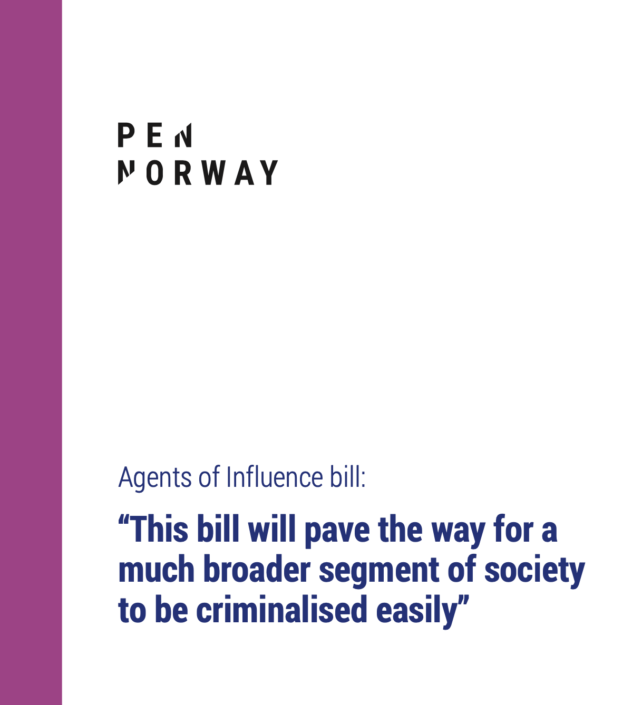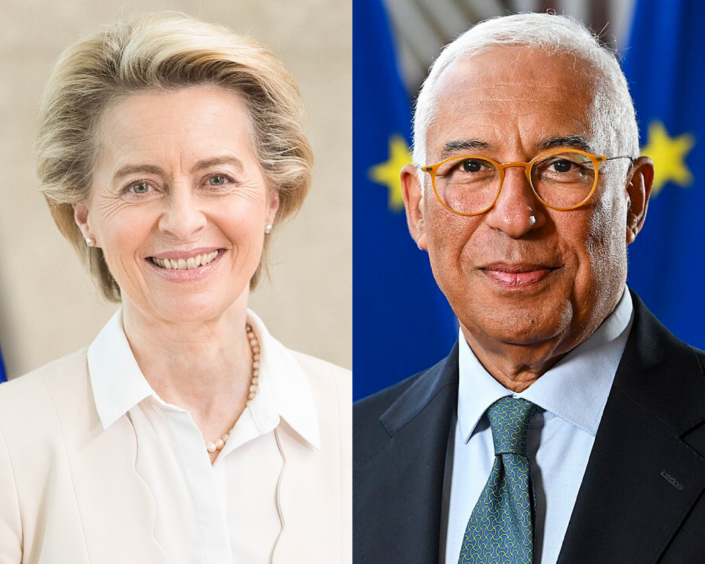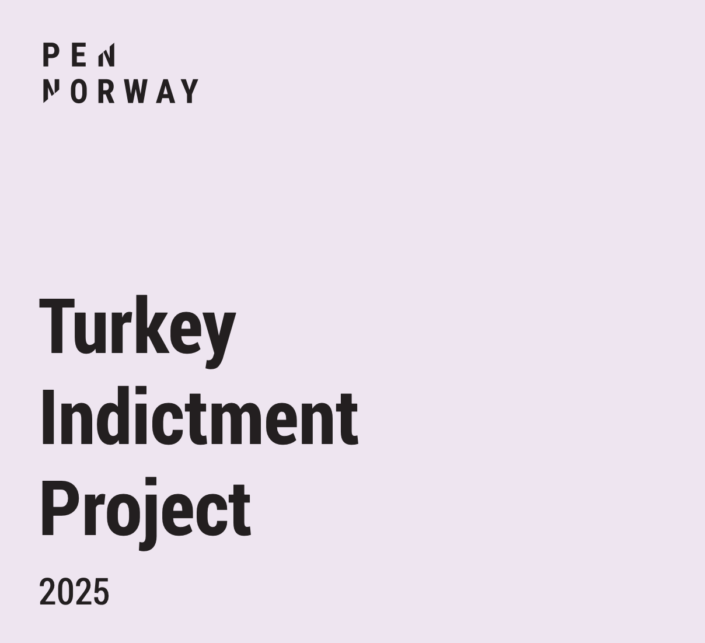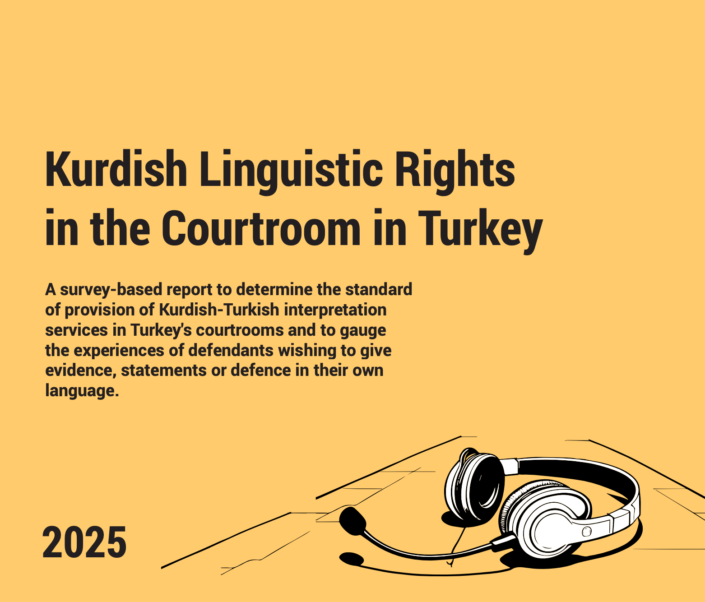None of the indictments meet national and international legal standards
In collaboration with lawyers, judges and legal experts from Turkey and Europe, PEN Norway has studied 11 indictments against journalists, lawyers, and civil society actors in over the past three years. That includes the indictments against Istanbul’s mayor Ekrem İmamoğlu, professor and doctor Şebnem Korur Fincancı. None of the indictments meet national and international legal standards. In addition, the report includes articles on the state of rule of law and freedom of expression in the country.
Recommendations:
1. Judicial Independence and the Rule of Law
The independence of the judiciary and prosecution service must be restored to ensure fair trials and prevent politically motivated indictments. The Council of Judges and Prosecutors should operate independently of the executive branch, with transparent appointment processes that prioritise legal expertise and integrity over political loyalty. Furthermore, judges and prosecutors must be protected from government interference and public pressure to rule in a particular manner.
2. Reforming Indictment Practices
The indictment process in Turkey must be overhauled to meet both domestic legal standards and international human rights obligations. Prosecutors must ensure that each indictment contains clear, specific, and well-supported allegations, directly linking the evidence to the alleged crime. The use of copy-pasted content from unrelated cases must cease, and judicial authorities should reject indictments that fail to meet basic legal requirements. Additionally, the presumption of innocence must be upheld by preventing government officials and pro-government media from making prejudicial statements about ongoing cases.
3. Freedom of Expression and Press Protection
The criminalisation of journalism must end. Articles 299 (insulting the President) and 301 (denigrating the state) of the Turkish Penal Code should be repealed or significantly amended in line with international human rights standards. Anti-terror laws (TMK) must be reformed to distinguish between legitimate journalistic activities and genuine threats to public security. Furthermore, all ongoing prosecutions against journalists, writers, and activists for peaceful expression should be immediately dismissed, and past convictions should be reviewed for potential miscarriages of justice.
4. Prosecutorial Training and Legal Education Reform
A critical step toward judicial reform is comprehensive training for prosecutors to improve the quality and fairness of indictments. Many of the flaws identified in this report stem from a lack of adherence to procedural law and best practices in indictment writing. PEN Norway’s Guidelines on Indictment Writing for Prosecutors in Turkey provide a clear framework for improving the structure, content, and evidentiary basis of indictments. These guidelines should be integrated into formal legal education and ongoing professional training for prosecutors. Additionally, the development of a standardised indictment template, aligned with both Turkey’s Procedural Code and international legal principles, would help ensure consistency and legal clarity. Training programmes should also address the ethical responsibilities of prosecutors, including the importance of impartiality, respect for due process, and the avoidance of politically motivated prosecutions.
5. Fair Trial Rights and Legal Representation
The right to adequate legal representation must be protected. Lawyers should not face prosecution for defending their clients, and cases against legal professionals should be independently reviewed to prevent abuse of prosecutorial powers. The independence of bar associations must be safeguarded, ensuring they can operate without government interference. Courts must also recognise and reject indictments that rely solely on secret witness testimony, as such evidence lacks transparency and undermines the right to a fair trial.
6. Accountability and International Oversight
Turkey’s judicial system must be held accountable for its violations of fundamental rights. The European Union, Council of Europe, and United Nations should continue to monitor Turkey’s compliance with ECtHR rulings and apply diplomatic pressure where necessary. An independent commission should be established to review wrongful convictions related to freedom of expression cases, with reparations offered to those who have suffered legal persecution.
PEN Norway’s Indictment Report 2025 contains the following indictments analysis and articles:
- Legal Report on Indictment: Cengiz Çandar by Barbara Spinelli
- Legal Report on Indictment: Sedef Kabaş (by Ezio Menzione)
- Legal Report on Indictment: Ekrem İmamoğlu (by Tony Fisher)
- Legal Report on Indictment: Şebnem Korur Fincancı (by Helen Duffy)
- Kurdish Press Under Judicial Pressure (Interview with Lawyer Resul Temur)
- Legal Report on Indictment: 18 Kurdish Journalist (by Şerife Ceren Uysal)
- Legal Report on Indictment: Dicle Müftüoğlu (by Ezio Menzione)
- Legal Report on Indictment: Abdurrahman Gök (by Şerife Ceren Uysal)
- Article: Turkey’s Journalists in the Firing Line for ‘Targeting officials’ (by Şerife Ceren Uysal)
- Legal Report on Indictment: Ayça Söylemez (by Florian Bohsung)
- Legal Report on Indictment: Fırat Can Arslan (by Heidi Heggdal)
- Istanbul Bar Association Under Threat! Interview with Lawyer Ezgi Şahin Yalvarıcı, member of the Istanbul Bar Association director’s board
- Legal Report on Indictment: 18 Lawyers Registered with the Istanbul Bar Association
(by Gerrit Jan Pulles & Veya Ayra Mandapat) - Legal Report on Indictment: Aryen Turan (by Gerrit Jan Pulles & Laura Vroom)
- Article: Another Barrier for Journalism: “The Disinformation Law”
- Article: Agents of Influence Bill: A Path to Mass Criminalisation (by Burcu Karakas)
- Article: “Every Voice That Breaks Through These Four Walls Turns Into a Resounding Echo of Freedom”
- Interview with Yıldız Tar, imprisoned Editor-in-Chief of KaosGL.org
About PEN Norway’s Turkey Indictment Project
PEN Norway has since 2020 studied more than 30 indictments in the cases of journalists and civil society figures who had been tried in Turkey. The work is being carried out by PEN Norway’s legal experts, in collaboration with international lawyers, judges and legal experts. The legal experts have compared the indictments to the requirements set out in Turkey’s Penal Code, and the European Convention on Human Rights and the UN Guidelines for Prosecutors. The findings illustrates that the indictments do not meet national or international legal standards.
Based on the alarmin report findings, PEN Norway develop a set of guidelines to support prosecutors in the indictment prcess. Our Guidelines on Indictment Writing for Prosecutors is a practical tool for prosecutors to ensure that the investigation process is fair, well-reasoned, consistent and aligned with the protection of fundamental rights and freedoms, which is among the duties of prosecutors.
Other reports in the Indictment Project:
Question about the reports or PEN Norway’s Turkey work? Contact us:

CAROLINE STOCKFORD
Turkey advisor
caroline@norskpen.no
Languages: English, Turkish

CEREN UYSAL
Legal Advisor
ceren@norskpen.no
Languages: English, Turkish

SIRI BERGE ENGERUD
Communications Advisor
siri@norskpen.no
Languages: Norwegian, English
Related news:

Tyrkias «Agents of Influence»-lov: En trussel mot ytringsfriheten
Artikkel: /av Siri Berge Engerud
Kurdiske journalister blir undertrykt, sier advokat Temur
Intervju:/av Siri Berge Engerud
En ny barriere for journalistikken: «Desinformasjonsloven»
Tyrkia: /av Siri Berge Engerud
Støtten til sivilsamfunnet i Tyrkia må styrkes
Brev til EU:/av Siri Berge Engerud
Urettferdig rettsprosess for ytrere
Tyrkia-rapport:/av Siri Berge Engerud


